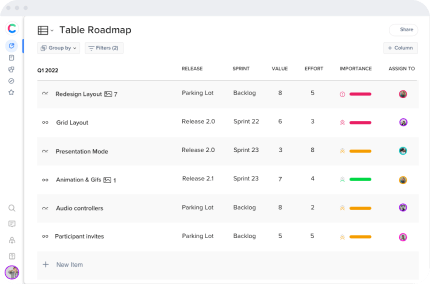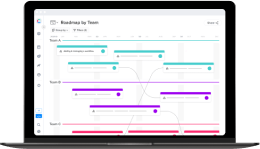What is a program manager?
A program manager defines a program’s strategic objectives and analyses how they will affect a company’s goals. They are responsible for defining and overseeing a list of dependent projects required to meet the program’s overall objectives.
A program manager is an architect who creates blueprints. While architects do not install home equipment or bricks, they ensure that these components work together to create a well-built edifice. The program manager’s responsibility encompasses more than just the completion of individual projects; it also includes the long-term implementation of the entire program.
Their responsibilities are to enlist teams, implement plans, measure ROI, and other big-picture activities.
What Is the Role of a Program Manager?
To comprehend what a program manager’s job includes, it is best to know what a program connotes as it will help understand the role of a program manager better.
A program is a collection of related initiatives (or a combination of projects and programs) that support a strategic business effort in an organization. A program could include introducing a new product, implementing a new sales process, and more.
Therefore, the program manager’s responsibility is to take a high-level picture of the entire program and strategically assist project managers in ensuring that everyone is working toward the same goal. A project manager then oversees each project under the program’s umbrella.
How Do Program Managers Collaborate With Other Stakeholders?
When a project manager is focused on a particular project, program managers provide strategic advice that a project manager may not be able to see.
Program managers have a bird’s-eye view of the entire organization. They keep track of not just one strategic initiative’s requirements and progress but all of them. As a result, they can assist in protecting the development team from being overworked or having unrealistic demands imposed on them.
During the development of products, a program manager might set rational objectives for product managers. Program managers can show how their available development resources fit into the larger company environment. A program manager can also advise a product manager that new resources may be available to hasten the development of their goods if a development team completes another initiative sooner than expected or recruits more individuals than intended.
Program managers can improve communication and coordination across the entire cross-functional team. They act as crucial communication hubs for cross-functional teams since they keep a strategic eye on their important initiatives. Moreover, they can empower all program participants and teams in making better decisions.
Finally, program managers concentrate on the strategic concerns to enable everyone involved in the interrelated projects to better their decision-making processes. While this is a significant distinction between program and product managers, it also demonstrates how the two professions can collaborate to provide programs and projects with a strategic advantage.


